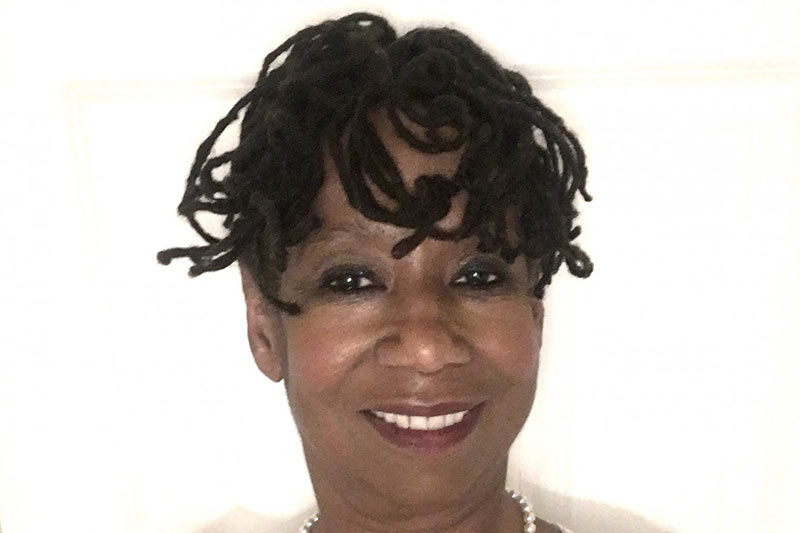Linda Thomas: called to LSTC for such a time as this

“Theological intersectionality is my ground of being,” says Linda E. Thomas, professor of Theology and Anthropology. Drawing from multiple fields of expertise, Thomas uses insights from research and experience in fields of anthropology, history and theology in her work and scholarship. “My goal is to help students at LSTC understand intersectionality and justice so that when others who look like me, sound like me, and behave like me show up it can be something that’s familiar.”
Thomas approaches her work and her life from a Womanist perspective: “I am a Womanist, which means that when I walk into a room, I bring all of me. I don’t separate my Blackness from being a woman or being a woman from being Black.”
Thomas is no stranger to bringing all of herself to her purpose. Called to ministry when she was 12 years old, Thomas knew immediately that she wanted to go to theological school. With laser-like focus, she began writing to seminaries to find her best fit. Her hard work and commitment to her call paid off. She studied with the founder of Black Liberation Theology James H. Cone at Union Theological Seminary in New York and was mentored by key founders of Womanist theology Katie Geneva Cannon, Delores S. Williams and Jacquelyn Grant. Those influences provided a supportive framework as Thomas investigated the gulf between the equity that God intends for all humanity and the lived reality for people of color in our contemporary world.
“Christians talk about all of us being made in God’s image,” Thomas says. “Well, I believe that. But tell me the reason some of us who are made in God’s image are treated differently than others.” Though Thomas has decades of experience investigating the problems of this uncomfortable reality within the confines of the United States, she has also asked the question more broadly, using her skills as an anthropologist to study global cultures and traditions.
It was her anthropological skill set, in part, that led former LSTC President James Kenneth Echols, 22 years ago, to identify Thomas as a must-have expert for the LSTC faculty. From Thomas’ perspective, the fact that LSTC wasn’t afraid to have members of other denominations like Kathleen (Kadi) Billman in leadership positions, or to have a Black president or to have the Trinity United Church of Christ’s Sanctuary Choir sing at the president’s installation, all indicated a positive fit. “Something is happening at LSTC,” Thomas remembers thinking. She wanted to be a part of it.
Once on campus, Thomas quickly became an important mentor for students experiencing crises of identity and difference. “Those students need to know they have someone who can support them, [someone who can provide] special instructions and strategies we can put in place for them to get through the program,” Thomas says. Her willingness to confront the system, stretch the system, advocate, and keep students safe has been a hallmark of her intellectual practice.
Now as the director of the Albert “Pete” Pero, Jr. and Cheryl Stewart Pero Center for Intersectionality Studies, Thomas hopes that the academic pursuits that have always been foundational to her interests and professional work will become key components of the perspectives and practice for all who walk LSTC’s halls.
Acting as an agent of change in academia and theology hasn’t been easy. In an ever-fractured world with front page news of violence and rising tides of fascism in our political institutions, Thomas sometimes wonders about her path. But then she remembers God’s call to her: “This [LSTC] is where I placed you for such a time as this.”
By Rhiannon Koehler, a writer, editor and content director in Chicago.